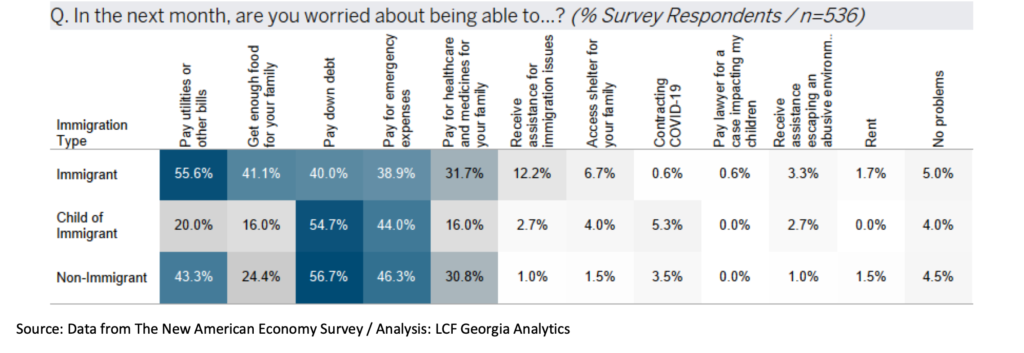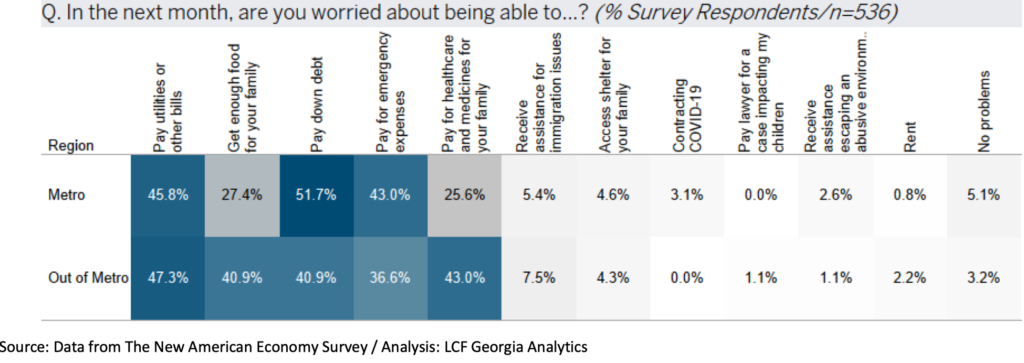As communities in Georgia grapple with the ongoing pandemic, the economic recesion. Specific groups are disproportionate affected because of specific challenges like language, limited mobility, diverse documentation, and cultural competency.
While at the begining of the public health crisis it was clear how unprepared mainstream organizations were to serve immigrants, rural communities were likely never ready to cope with the everyday needs of their residents. The pandemic only exacerbated that reality.
As The New American Economy in their national report note, without targeted efforts to promote equitable disaster response and recovery, these communities not only will never be able to recuperate, they will also be more vulnerable to future emergencies.
The findings in the report come from the Georgia-specific effort the Latino Community Fund (LCF Georgia) and the Atlanta Mayor’s Office of Immigrant Affairs and their outreach team engage in for several months at the beginning of 2021.
The Atlanta Mayor’s Office of Immigrant Affairs and the LCF Georgia team worked around the clock to complete 900 surveys. Data was structured for analysis and clarity following a rigorous academic methodology.
It is our hope this report informs policy, decision-making, investments and transformative thinking as we finish 2021 with over 25,000 COVID-19 deaths in the state and many more thousand individuals suffering from the long term effects of the virus, death of our loved ones, suffering and limitations to able to afford basic necesities to survive.
Key Findings
- Immigrants were disproportionally affected as being laid off, having hours reduced in their jobs or closing businesses.
- 56.2% of respondents living outside Metro Atlanta either lost a job or had their hours reduced.
- Two-thirds of immigrants who answered the survey do not have access to work remotely and do not have access to sick leave (66.7% and 72.1% respectively).
- The vast majority of people living outside of Metro Atlanta do not have access to work remotely or paid sick leave (79.5% and 88.9% respectively).
- Both immigrants and non-immigrants report financial concerns as the overwhelming reason behind their decision to not get health care when needed (60% and 57.1%). The numbers do not vary much when comparing Metro and outside Metro Atlanta (60%).
- Over 1/4 of immigrants worry their children are behind academically. 16.1% for non-immigrants.
- Only a third of immigrants report having paid rent or mortgage on time compared to 69% of children of immigrants or non-immigrants (68.4% and 69.1% respectively).
- Over half of all individuals report having concerns about paying utilities and bills (immigrants) and debt (children of immigrants and non-immigrants) in the next month.
- 41% of immigrants report having concerns about getting enough food for the next month.
- Over 60% of respondents from outside of Metro Atlanta report reducing expenses to be able to meet housing expenses.
- Over 40% of all outside of Metro residents (immigrants and non-immigrants) report having concerns about paying bills, rent or mortgage, debts and healthcare expenses in the next month.


You can download the report here or scroll below to read it.
Responses